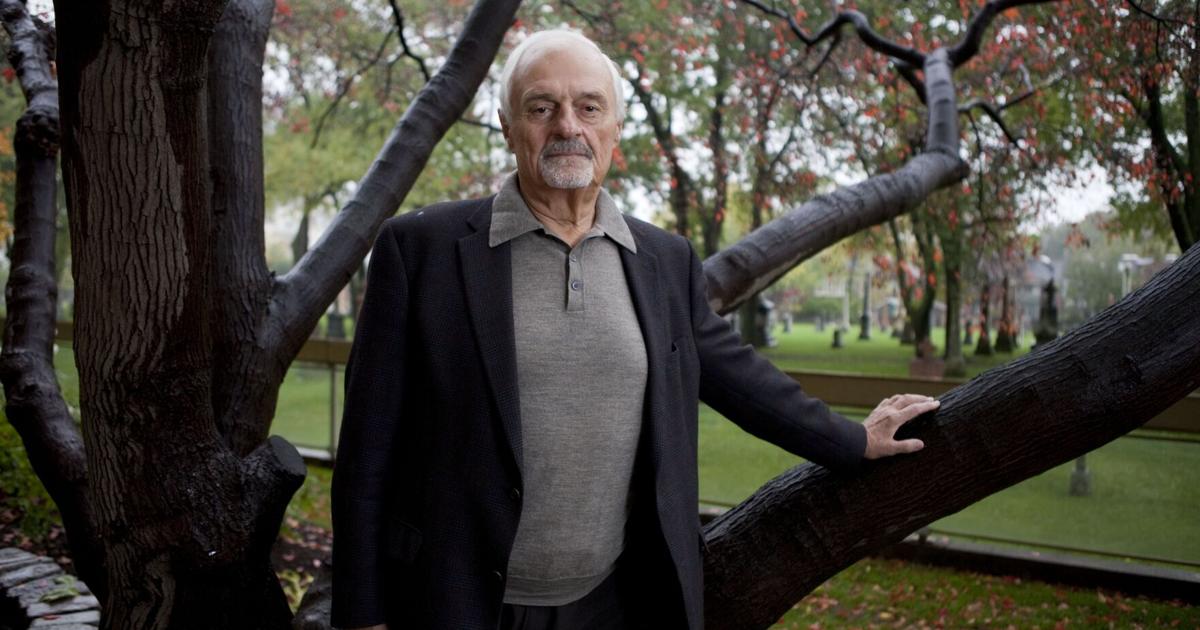Canadian filmmaker Ted Kotcheff, famous for big-name Hollywood movies including “Weekend at Bernie’s” and the initial Rambo flick “First Blood,” has died. He was 94.
The Toronto native, who grew up during the Depression in Cabbagetown, died of heart failure on Thursday in Nuevo Vallarta, Mexico, just two days after celebrating his birthday, his daughter Kate Kotcheff confirmed.
“He was an amazing storyteller. He was an incredible, larger than life character and he was so knowledgeable about so many different things,” said Kate on Friday.
“One of his great talents was people would sit around and he’d tell the most incredible stories. He was almost like the sort of character that doesn’t really exist much in the world anymore,” she said.
Kotcheff accumulated a diverse range of moviemaking credits over about six decades, including the 1974 classic “The Apprenticeship of Duddy Kravitz,” an adaptation of Montreal-native Mordecai Richler’s novel.
In his 2017 memoir “Director’s Cut: My Life in Film,” Kotcheff wrote about his childhood. He said his Bulgarian father and Macedonian mother were so poor they couldn’t afford coal or wood to heat the house, and he came close to death as a toddler one frigid winter night.
“I was blue and I could hardly breathe and my mother woke up and she saw me, this blue frozen piece of meat, and she screamed, ” he told The Canadian Press in 2017.
Luckily his father was a marathon runner and was able — on foot — to quickly get a doctor.
Kotcheff began his career with the CBC in the 1950s, directing TV dramas including “General Motors Theatre” and “First Performance.”
He moved to England in the late ‘50s, to pursue a career in film, where he shared an apartment with Richler. After reading Richler’s book “The Apprenticeship of Duddy Kravitz,” he eventually turned it into an Oscar- and Golden Globe-nominated film. Mainly shot in Montreal, the comedy-drama starred a young Richard Dreyfuss, and came out in 1974.
“I read the whole book at one sitting … and said, ‘Mordecai, not only is this one of the great Canadian novels ever written, but one day I’m going to go back to Canada and make a film out of it’,” Kotcheff said. “We laughed like crazy because of course at that time there was no Canadian film industry whatsoever.”
He went on to direct Hollywood legends from Gregory Peck to Jane Fonda.
With 1982’s “First Blood,” Kotcheff introduced audiences to the fictional soldier John Rambo, marking Sylvester Stallone’s first post-“Rocky” hit.
It was “primarily a Canadian film,” Kotcheff said. “It’s based on a Canadian book written by David Morrell, it had a Canadian director, we shot it in Hope, B.C., and it had a Canadian crew.”
Kotcheff also helmed the seminal 1971 Australian New Wave film “Wake in Fright.”
“I think ‘Wake in Fright’ was his greatest achievement in film,” said Kate, whose mother and Kotcheff’s wife at the time, Sylvia Kay, also starred in the thriller. She recalled living in Australia for nine months while her father shot the film.
“The movie really says something about Australian culture and particularly men at that time, and how Australia was in the places that weren’t the big cities,” added Kate. Kotcheff and his second wife Laifun had two children, and he had three children — including Kate — from his previous marriage.
In a 1975 interview with the Los Angeles Times, Kotcheff said, “The sense of being outside of the mainstream of the community has always attracted me. All my pictures deal with people outside or people who don’t know what’s driving them.”
Despite this international success, he had always thought his career would be closer to home.
“My dream was to make films in and about Canada, ” he told the Star’s Martin Knelman from his home at the top of the Hollywood Hills, in 2013.
A long way from Cabbagetown, Knelman described the home as being “perched at the edge of a cliff,” with a view “all the way to the Pacific Ocean.
“I went to London because there was no film industry in Canada. My dream was to come home after I learned the film craft,” Kotcheff told Knelman.
He did eventually earn recognition in this country, with a lifetime achievement award from the Directors Guild of Canada in 2011.
More recently he was executive producer for hundreds of episodes of “Law & Order: Special Victims Unit.”
A documentary about his life, “The Apprenticeship of Ted Kotcheff,” is now in the works.
Kate said the secret to her father’s versatility was his dedicated focus on the story.
“He was very well read and quite literary. For him, it was always about the story and the characters, so it didn’t really matter what genre it was,” she says.
With files from The Canadian Press and Toronto Star archives



